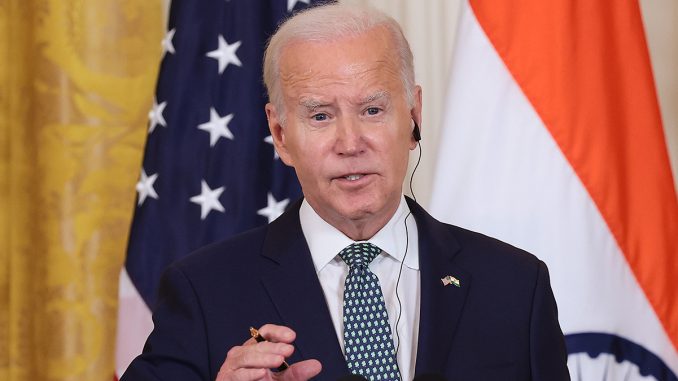
The Supreme Court Friday stuck down Texas and Louisiana’s legal challenge to new Biden administration border policies that violate federal statutes and harm citizens in Texas and Louisiana, the states argued.
All justices besides Samuel Alito concurred in the opinion that Texas and Louisiana lack standing to challenge the new rules, which the Department of Homeland Security promulgated in 2021.
Texas and Louisiana argued that federal law requires law enforcement to arrest certain noncitizens upon their release from prison or entry of a final order of removal, but the new DHS rule only prioritizes the arrest and removal of noncitizens who are suspected terrorists or dangerous criminals who unlawfully entered the country recently. The states claimed that these rules harmed them by imposing extra costs, among other things.
While the U.S. District Court for the Southern District of Texas last year found that the states would incur additional costs, the Supreme Court ruled that any alleged injury must also be “legally and judicially cognizable” to meet standing requirements, and this harm does not.
On the merits, the district court found the DHS guidelines unlawful and vacated them, and the 5th Circuit Court of Appeals declined to stay the court’s judgment.
Justice Brett Kavanaugh delivered the court’s opinion, and Chief Justice John Roberts joined it, along with Justices Sonia Sotomayor, Elena Kagan, and Ketanji Brown Jackson. Justice Neil Gorsuch wrote a concurring opinion, in which Justices Clarence Thomas and Amy Coney Barrett joined. Barrett also wrote a concurring opinion, which Gorsuch joined.
Alito condemned the decision in a scathing dissent.
“The Court holds Texas lacks standing to challenge a federal policy that inflicts substantial harm on the State and its residents by releasing illegal aliens with criminal convictions for serious crimes,” Alito wrote. “In order to reach this conclusion, the Court brushes aside a major precedent that directly controls the standing question, refuses to apply our established test for standing, disregards factual findings
made by the District Court after a trial, and holds that the only limit on the power of a President to disobey a law like the important provision at issue is Congress’s power to employ the weapons of inter-branch warfare—withholding funds, impeachment and removal, etc.”
“I would not blaze this unfortunate trail,” the justice added. “I would simply apply settled law, which leads ineluctably to the conclusion that Texas has standing.”
This is a breaking story and will be updated.
Have an opinion about this article? To sound off, please email letters@DailySignal.com and we’ll consider publishing your edited remarks in our regular “We Hear You” feature. Remember to include the url or headline of the article plus your name and town and/or state.

